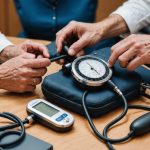Recovery from eating disorders and addictions demands expert support tailored to individual needs. Counsellors provide confidential, empathetic guidance at every stage, connecting people to treatments and resources. Helplines like Beat offer accessible, free services—by phone, webchat, or email—ensuring vital help is always within reach, even for those unsure where to start their recovery journey.
Understanding Eating Disorder Counselling and Support Services
eating disorder treatment begins with recognizing the pivotal role of specialized eating disorder counselors. These professionals deliver tailored support that addresses the emotional and behavioral roots of each condition, including anorexia, bulimia, and binge eating disorder. Early intervention is vital; the sooner someone seeks help, the better the chances of recovery.
This might interest you : Exploring the Impact of Group Therapy on Social Anxiety Disorder Treatment: A Comprehensive Analysis
Counseling helps individuals explore underlying emotional issues like low self-esteem, trauma, or media influences. Support services offer a safe space for people to articulate feelings without judgment. This process fosters trust, enabling clients to regain control over disordered eating habits that often serve as coping mechanisms.
Support options extend beyond therapy—comprehensive programs include family involvement, peer groups, and holistic approaches. Private and inpatient care for personalized treatment plans further enhance recovery prospects. Such interventions emphasize compassion and understanding, helping individuals find lasting relief and improved well-being.
This might interest you : The Impact of Forest Bathing on Reducing Stress: A Deep Dive into Nature”s Calming Effects
What Eating Disorder Counsellors Do and Their Qualifications
Scope of Counselling Services
Eating disorder therapy addresses a wide range of diagnoses, including anorexia nervosa, bulimia nervosa, and binge eating disorder. Licensed eating disorder specialists design personalized treatment plans that may combine in-person or phone and online counseling options, expanding access for diverse populations. Services often encompass support for mental health and eating disorders that co-occur, ensuring emotional eating therapy and food addiction therapy are integrated within broader strategies. Approaches like cognitive behavioral therapy, dialectical behavior therapy, and nutrition counseling for eating disorders are tailored to each individual’s needs.
Qualifications and Credentials of Counsellors
Licensed eating disorder specialists possess extensive training in professional counseling for eating disorders and hold necessary certifications. Many are part of a multidisciplinary team—dietitians, psychiatrists, and other professionals collaborate to deliver nutrition counseling for eating disorders and clinical management. Experience in interventions for eating disorders and behavioral therapy techniques is integral to effective support. Counselors are required to understand eating disorder diagnosis criteria, ethical considerations, and confidentiality in counseling.
The Therapeutic Process and Setting Expectations
Counselors begin with comprehensive eating disorder assessment tools and conduct initial evaluations to create personalized treatment plans. Sessions may include nutrition counseling for eating disorders, meal planning assistance, and setting individualized recovery goals. The process is designed to support positive change, monitor progress, and adapt plans for long-term recovery.
How Counseling Supports Recovery and Improvement
Addressing Emotional and Behavioral Factors
Counseling for eating disorders prioritizes breaking the cycle of disordered eating by applying the SQuAD model: What are the most effective first steps? Experts suggest personalized approaches like food addiction therapy and emotional eating therapy, focusing initially on understanding emotional triggers. Exploring the emotional roots of habits leads to more powerful outcomes. This process typically features the development of targeted coping strategies, grounded in techniques such as cognitive behavioral therapy, motivational interviewing, and mindfulness.
Counseling also emphasizes identifying triggers for disordered eating and training clients to replace harmful responses with healthier ones. Regular sessions may use relapse prevention methods, teaching stress management and emotional regulation techniques so individuals can confidently handle setbacks and sustain progress.
Physical and Nutritional Rehabilitation
Nutrition counseling for eating disorders is often paired with food addiction therapy to ensure physical health and safe restoration of nutritional balance. Therapy teams, which may feature dietitians, introduce strategies for weight restoration and maintenance tailored to each person. Holistic approaches to eating disorders also bring together food addiction therapy, nutritional rehabilitation, and behavioral change for robust recovery.
Strengthening Self-Esteem and Body Image
Emotional eating therapy, paired with practical coping strategies, supports building confidence and body positivity. Activities address challenging societal or media pressures and reinforce resilience, leaving clients better able to sustain recovery amid everyday challenges.
Accessing Support, Resources, and Contacting Professionals
How to Find a Qualified Eating Disorder Therapist
Start by consulting a directory of licensed eating disorder specialists. Prioritize therapists who use therapeutic models like cognitive behavioral therapy benefits and demonstrate expertise in professional counseling for eating disorders. Criteria for effective selection include credentials, specialties such as binge eating disorder help, and the offering of personalized treatment plans. Practitioners skilled in nutrition counseling for eating disorders and food addiction therapy provide comprehensive support. Personalized and culturally sensitive approaches strengthen outcomes, making culturally appropriate eating disorder therapy a vital consideration.
Support Networks and Community Resources
Participation in support groups for eating disorders can make a marked difference. Peer support in recovery fosters connection, helping individuals feel less isolated. Involving family through family therapy for eating disorders encourages understanding and addresses family dynamics and eating disorders, which is crucial in relapse prevention. For immediate guidance, helplines and online services staffed by professionals trained in empathy provide direct access to psychological support for food addictions.
Costs, Confidentiality, and Practical Considerations
Insurance coverage for treatment often offsets typical costs of therapy, but verify with each provider. Confidentiality in counseling is fundamental, including anonymity in helplines, although exceptions exist for risk concerns. Flexible scheduling and telehealth eating disorder services promote access to eating disorder support for varying lifestyles and locations.








